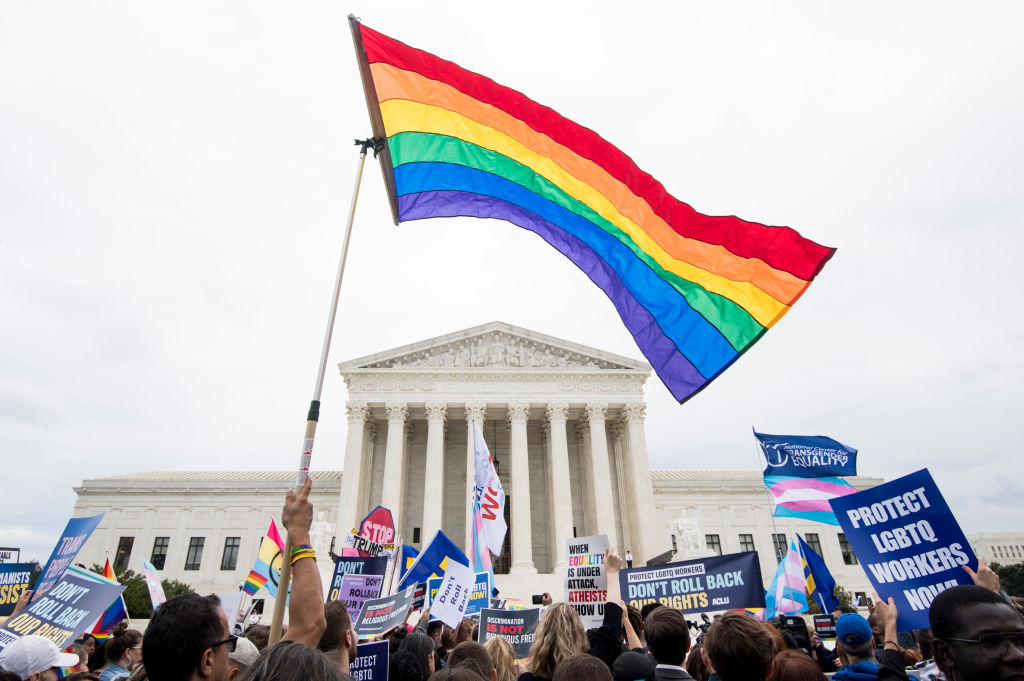LGBT+ activists rally in front of the Supreme Court in October 2019 (Photo By Bill Clark/CQ-Roll Call, Inc via Getty Images)
The latest ruling from the US Supreme Court is being hailed as a landmark victory for LGBT+ people, but it has one glaring loophole: it doesn’t apply to small businesses.
On Monday (June 15) the court ruled that existing provisions under the 1964 Civil Rights Act, which outlaw discrimination based on sex, also apply to cases where “an employer fires an individual merely for being gay or transgender”.
The ruling extends the sex-based employment discrimination protections known as Title VII to LGBT+ people in all 50 states – a significant step, as equality measures to do so have long stalled by Republicans in Congress.
But it includes a critical exception for small businesses with fewer than 15 employees, which employ as many as one in six Americans.
The exact number of people who fall into this category is unclear as there’s no specific data on how many employees work for such companies. But according to Al Jazeera, the US Bureau of Labor Statistics estimates about 17 per cent of the workforce is employed by companies with 19 or fewer employees.
Some states have stronger laws, such as California, where businesses with at least five workers can’t discriminate. But many LGBT+ Americans employed by small companies in conservative states could easily fall through the cracks.
“I don’t know of any decent excuse or rationale for having let that sit on the books,” said Moe Vela, who served as a senior advisor on LGBT+ affairs to Joe Biden.
“There’s always been a special kind of place for small businesses in the legislative process, but I don’t understand how that protective spirit can translate in any way to allowing them to discriminate against employees based on who they love or what gender they identify with.”
The Supreme Court decision also hasn’t addressed other civil rights questions, such as whether LGBT+ people can be refused access to housing or denied services from businesses, and whether homophobic and transphobic discrimination is justified by religious beliefs.
It is a “monumental decision for the LGBT+ community, but it is not the end of our struggle,” said Alphonso David, president of the Human Rights Campaign – but he acknowledged that there is much more work still to do.
“We’re still fighting to make sure LGBT+ people are protected in all aspects of their lives,” he added.
